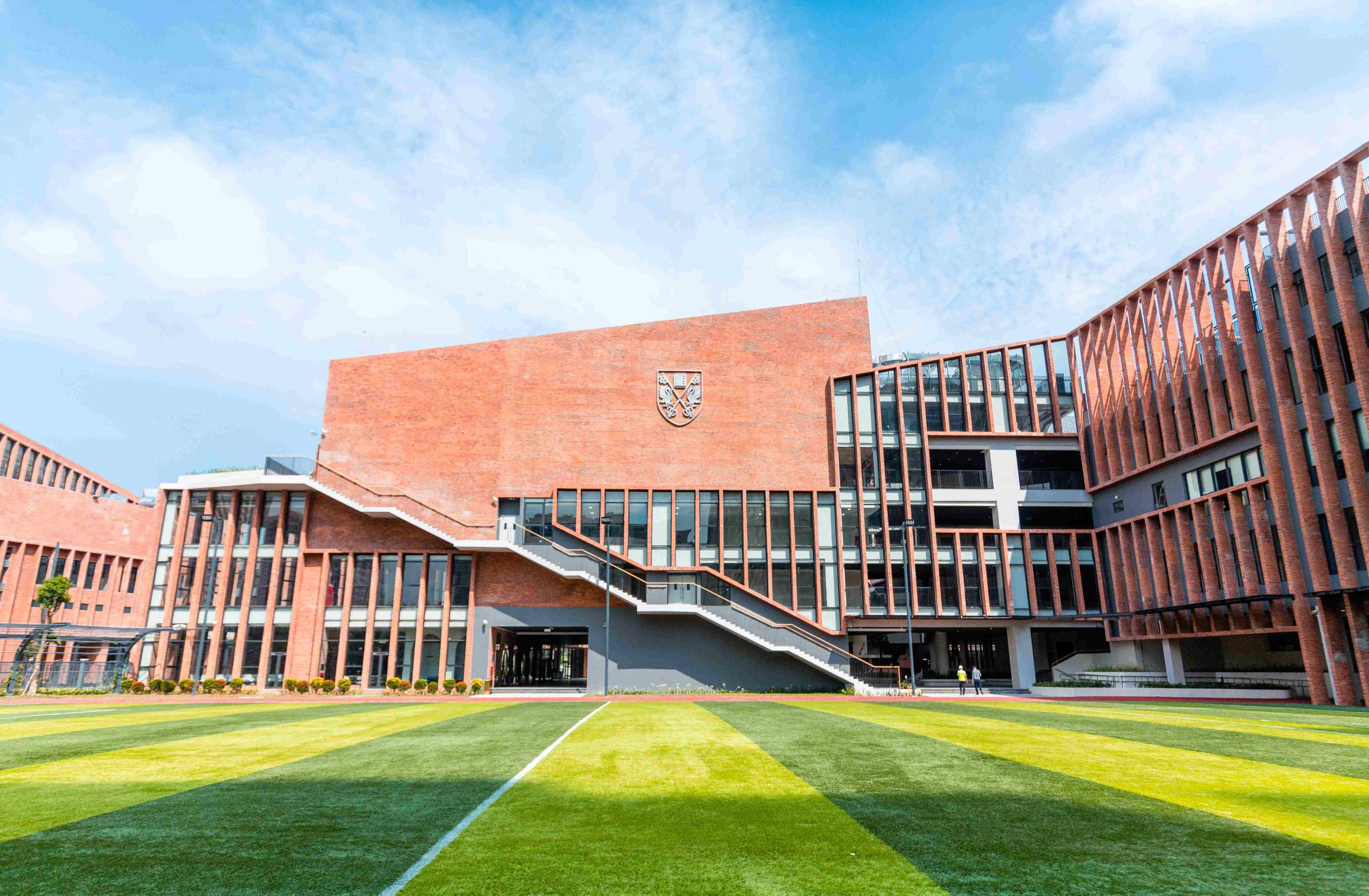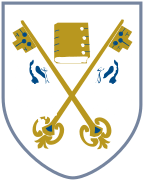Purpose and Scope of Policy
The College prides itself on the quality of the teaching and pastoral care provided to its pupils. However, if parents do have a concern or complaint, they can expect it to be treated by the College in accordance with this policy, which is published on the College website and is available upon request to all parents of pupils at the College.
This policy is available to parents of currently registered pupils. It is also available to parents of former pupils where the complaint was initially raised by them when the pupil was still registered. It does not extend to complaints about exclusions. In the following narrative “Head” refers to the Head of either the Prep, or BCVN as appropriate.
Stage 1 – Informal resolution
It is hoped that most complaints will be resolved quickly and informally within 15 working days.
- If parents, ‘the complainant’, have a complaint they should contact their child’s tutor or class teacher in the first instance, who will seek to resolve the matter to the complainant’s satisfaction. Teachers may wish to consult a Head of Department (HoD), Deputy Head, or
the Head. - A member of the Senior Leadership Team (SLT) of the appropriate school, or Head, may be involved in order to assist in resolving the matter within the timescale provided. A record of any complaints handled by a member of the SLT will be kept centrally by the
Head of College’s PA. - If a resolution is not reached within fifteen working days, the complainant may decide to proceed with their complaint formally in accordance with Stage 2 of this procedure. It is expected that complaints will only progress to Stage 2 after first being considered at Stage 1 and only then if the complainant intends to escalate a matter to the formal stage, thus allowing the complainant the potential for consideration at three distinct stages.
Stage 2 – Formal Resolution
If the matter is not resolved to the complainant’s satisfaction under Stage 1, they may invoke the formal part of this Complaints policy.
If the complaint cannot be resolved on an informal basis then the complainant should put it in writing to the Head, who will decide the appropriate course of action to take. Please note that the complaint should not at this stage be sent to the Chair of the Board of Governors whose involvement begins at Stage 3 below. For fairness it is important that the person hearing the complaint at each stage has not been involved in prior investigations so that they can remain impartial and neutral.
- In most cases, the Head will meet or speak to the complainant concerned to discuss the matter within ten school working days of the Head receiving the written complaint. It is hoped that a resolution will be reached at this stage.
- If the Head considers it necessary to carry out further investigations, he will notify the complainant that an investigation is being carried which will take up to five working days, or longer if agreed by the complainant. He will appoint a senior member of staff who has
had no prior involvement in the matter to carry out the investigation. - Once the Head is satisfied that, so far as is practicable, all of the relevant facts have been established in the course of the investigation, he will make a decision based on the report and the complainant will be informed in writing of this decision and the reasons for it. At
the discretion of the Head, a meeting with the complainant may be offered to discuss the results of the investigation and the proposed decision. - The Head and senior staff will keep written records of all meetings and interviews held in relation to the complaint. If the Head feels that further investigation is warranted in order to reach a decision, they should inform the complainant and discuss with them a suitable
timeframe within which to carry out this further investigation.
If the complainant is not satisfied with the decision, the complainant can choose to request a panel hearing, stage 3 of this procedure.
Stage 3 – Appeal to Chair of the Board of Governors
If (following failure to reach a resolution under Stage 2) the complainant may request an appeal to the Chair of the Board of Governors. The complainant should send written notice of their complaint to the Chair of the Board of Governors of BCVN. When doing so, the complainant should i) give reasonable particulars of their complaint sufficient to allow the Chair of the Board of Governors to consider and resolve it, ii) specify the outcome they feel is fair.
The PA to the Chair of the Board of Governors will acknowledge the complaint and schedule a meeting to take place as soon as practicable and within ten school working days of receipt of the complaint, taking into account the dates supplied by the complainant and the availability of the Chair of the Board of Governors. Complainants are advised that in scheduling such a meeting it will be attempted to accommodate suitable dates but that this is not always possible.
- The Chair of the Board of Governors may require that further particulars of the complaint or any related matter be supplied in advance of the meeting. Copies of such particulars shall be supplied to all parties not later than five school working days prior to the hearing.
- The complainant has the right to attend and be accompanied at a meeting if they wish. Legal representation will not normally be appropriate, as the hearing is not a formal legal proceeding and it is more important that the Chair of the Board of Governors hears directly from the complainants in their own words.
- The Chair of the Board of Governors will consider the matter and if the complaint can be resolved, based on the evidence available, they will attempt to achieve this or they will consider whether further investigation is needed.
- Where further investigation is required, the Chair of the Board of Governors will decide how it should be carried out and the timescale for such an investigation, up to a maximum of ten school working days, or longer if agreed by the complainant.
- Depending on the nature of the complaint, the Chair of the Board of Governors is authorised to review and reach findings in relation to all matters in dispute, including both the process by which decisions were reached at earlier stages and also the substance of
those decisions. This does not provide the right to impose sanctions on staff, pupils or parents; require apologies to be given by individual members of staff; or make refunds of fees or compensatory awards. However such actions may be consequential of the process. - The decision of the Chair of the Board of Governors will be communicated no later than five school working days after investigations and process have completed.
- The findings and any recommendations of the Chair of the Board of Governors will be provided to the complainant and, where relevant, the person complained about; a copy of the findings will be kept by the PA to the Chair of the Board of Governors.
Stage 4 – Panel Review
If the complainant is still dissatisfied after Stage 3, they can request a review by an independent panel. The panel is composed of individuals who were not involved in earlier stages, ensuring impartiality. They review the case, consider all evidence, and offer a final decision, which is
binding.
The panel will issue its findings and recommendations in writing, and the decision will be final. No further appeal are available after this stage.
Recording and Review
A written record will be kept of all formal complaints, including whether they are resolved following a formal procedure or proceeded to a panel hearing. This record will also outline the action taken by the School as a result of the complaint, regardless of whether or not the complaint
is upheld. The school also keeps a record of complaints made but later withdrawn. All written records will be retained in line with the College’s Retention and Deletion Schedules.
Parents can be assured that all complaints will be treated seriously. The complaint and any associated correspondence, statements and records will be kept confidential where possible, but where a complaint is in relation to safeguarding it may be necessary to involve outside agencies.
The Head of College will review all formal complaints and their outcomes termly and report on these to the Governors, with a particular focus on any patterns or trends giving rise to concern.
Complaints received during the school holidays will be dealt with once term recommences unless they are of an immediate safeguarding concern.
Persistent/vexatious complaints
Where repeated attempts are made by a parent to raise the same complaint after it has been considered at all three stages, the School reserves the right to regard this as vexatious and outside the scope of this policy.
Complaints raised via social media
It is never appropriate for parents to raise complaints in an open forum via social media. For the dignity and protection of all parties, complaints must be raised in keeping with this policy. Where parents make complaints in open forum, they will not be considered to be formal complaints and the College reserves the right to consider such actions as vexatious. Continued raising of complaints in open forum may constitute an irreparable breakdown in relations between parents and the College.


